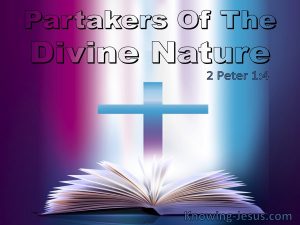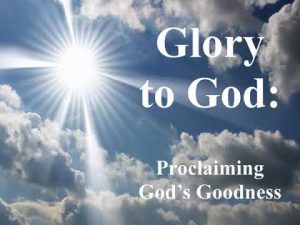Welcome to Day 1586 of our Wisdom-Trek, and thank you for joining me.
I am Guthrie Chamberlain, Your Guide to Wisdom
Partakers of the Divine Nature – Worldview Wednesday
Welcome to Wisdom-Trek with Gramps! Wisdom is the final frontier in gaining true knowledge. Our mission is to create a legacy of wisdom, seek out discernment and insights, and boldly grow where few have chosen to grow before. Hello, my friend; this is Gramps; thanks for coming along on our journey to increase Wisdom and Create a Living Legacy. Today is Day 1586 of our Trek, and it is Worldview Wednesday. Creating a Biblical Worldview is essential to have a proper perspective on today’s current events. To establish a Biblical Worldview, you must have a proper understanding of God and His Word. This week, we will continue reviewing the book from Dr. Michael S Heiser titled “Supernatural.” The book is an abbreviated version of his more comprehensive book, “The Unseen Realm.” I highly recommend both of these books. Creating a Biblical Worldview based on how the Old and New Testaments connect with God’s overall plan for humanity is essential. This book review will help us understand what the Bible teaches about the unseen world, and why it matters.
Partakers of the Divine Nature

Do you know who you are?
I asked the question earlier, but it’s time to raise it again. Yes, we are in the world but not of it. True, we have been saved by grace through faith in what Jesus did on the cross (Ephesians 2:8–9). But that’s just the beginning of understanding what God has been up to.
God’s original intention in Eden was to merge his human family with his divine family, the heavenly sons of God who were here before creation (Job 38:7–8). He didn’t abandon that plan at the fall. Christian, you will be made divine, like one of God’s elohim children, like Jesus himself (1 John 3:1–3).
Theologians refer to the idea by many labels. The most common is glorification. Peter referred to it as becoming “partakers of the divine nature” (2 Peter 1:4). 1 John 3:1 puts it this way: See how very much our Father loves us, for he calls us his children, and that is what we are! But the people who belong to this world don’t recognize that we are God’s children because they don’t know him. In this chapter of Supernatural, we’ll take a look at how the Bible conveys that message.
Sons of God, Seed of Abraham
When God turned the nations of the world over to lesser gods at Babel, he did so knowing he would start over with a new human family of his own. God called Abraham (Genesis 12:1–8) right after Babel (Genesis 11:1–9). Through Abraham and his wife Sarah, God would return to his original Edenic plan.
God’s people, the children of Abraham, the Israelites, ultimately failed to restore God’s good rule on earth. But one of those children would succeed. God would become human in Jesus, a descendant of David, Abraham, and Adam. It was through Jesus that God’s promise to one day bless the nations he had punished at Babel was fulfilled. Paul wrote about that in several places. Here are two. Ephesians 3:3–6:
As I briefly wrote earlier, God himself revealed his mysterious plan to me. As you read what I have written, you will understand my insight into this plan regarding Christ. God did not reveal it to previous generations, but now by his Spirit, he has revealed it to his holy apostles and prophets. And this is God’s plan: Both Gentiles and Jews who believe the Good News share equally in the riches inherited by God’s children. Both are part of the same body, and both enjoy the promise of blessings because they belong to Christ Jesus.
For you are all children of God through faith in Christ Jesus. And all who have been united with Christ in baptism have put on Christ, like putting on new clothes. There is no longer Jew or Gentile, slave or free, male and female. For you are all one in Christ Jesus. And now that you belong to Christ, you are the true children of Abraham. You are his heirs, and God’s promise to Abraham belongs to you.
As I shared in earlier chapters: Throughout the Old Testament, those people who were not Israelites lived in territory that had come under the dominion of the lesser gods to whom God had assigned those nations at Babel. At Babel, the nations other than Israel had been disinherited from a relationship with the true God. Israel and only Israel was God’s “portion” (Deuteronomy 32:9) of humanity. Israelites referred to the people of the disinherited nations by many terms. There were geographical or ethnic labels (e.g., Egyptians, Moabites, Amalekites), but the comprehensive description in New Testament times was Gentile, a label that comes from the Latin word for “nations” (gens). If you aren’t Jewish, you’re a Gentile.
The story of the New Testament is that a descendant of Abraham—Jesus—died and rose again to redeem not only Abraham’s ethnic descendants (Israelites/Jews) but also all the people among the nations who had formerly been disinherited from the true God. In the verses quoted just above, Paul called the inclusion of Gentiles in the family of God a mystery. It astonished him that people from the nations God had cast off, and which were under the control of other gods, could inherit the promises given to Abraham.
In Christ, all who embrace the gospel are children of Yahweh, the true God, the God of Abraham, Isaac, and Jacob (John 1:12; Galatians 3:26; Romans 8:14). This is why the New Testament talks about believers using family terms (sons, children, heir) and the language of being “adopted” by God (Romans 8:15, 23; Ephesians 1:5; Galatians 4:4). The language of inheritance is crystal clear and deliberate. It tells us who we are: the new divine-human family of God. The believer’s destiny is to become what Adam and Eve originally were: immortal, glorified imagers of God, living in God’s presence. But even that doesn’t fully express who we are. The most amazing part is how Jesus sees us.
A Family Reunion

The first two chapters of the book of Hebrews give us a dramatic picture of God’s blended family—divine and human. For me, it’s one of the most stirring passages in the Bible.
Hebrews 1:4 makes the point about Jesus. This shows that the Son is far greater than the angels, just as the name God gave him is greater than their names. No one is higher in God’s heavenly council than Jesus. After all, he’s God. In fact, the writer points out that since no angel was fit to become man and inherit the kingdom, angels need to worship Jesus. Jesus is king. Hebrews 1:5-6
Remarkably, when Jesus became a man, he was for a short time lower than the angels. He became one of us. Humans are lesser creatures than divine beings like angels. The writer of Hebrews asks in Hebrews 2:6-9.
For in one place the Scriptures say,
“What are mere mortals that you should think about them,
or a son of man that you should care for him?
Yet for a little while you made them a little lower than the angels
and crowned them with glory and honor.
You gave them authority over all things.”
Now when it says “all things,” it means nothing is left out. But we have not yet seen all things put under their authority. What we do see is Jesus, who for a little while was given a position “a little lower than the angels”; and because he suffered death for us, he is now “crowned with glory and honor.” Yes, by God’s grace, Jesus tasted death for everyone.
What’s the result of what Jesus did? We might say salvation. That would be right, but it misses what the writer of Hebrews wanted us to know. Because God became man in Jesus Christ, his mortal followers will become divine—and members of the same family.
Someday, whether at our death or at His return to earth in the final form of the kingdom on earth, the new Eden, Jesus will introduce us to the rest of the divine council, and the council to us. He became as we are so we might become as he is in Hebrews 2:10-13:
God, for whom and through whom everything was made, chose to bring many children into glory. And it was only right that he should make Jesus, through his suffering, a perfect leader, fit to bring them into their salvation.
So now Jesus and the ones he makes holy have the same Father. That is why Jesus is not ashamed to call them his brothers and sisters. For he said to God,
“I will proclaim your name to my brothers and sisters.
I will praise you among your assembled people.”
He also said,
“I will put my trust in him,”
that is, “I and the children God has given me.”
Instead of being embarrassed before the elohim of God’s council at becoming human—becoming lower than they are—Jesus revels in it. It was all part of a grand strategy. Standing in the council (“in the assembly”), he presents us: Behold—look at me, and the children God has given me. We are all together now—forever. And that had been the plan from the beginning.
Our entrance into God’s divine, glorified family is our destiny. Paul puts in beautifully in Romans 8:18–23:
For I consider that the sufferings of this present time are not worth comparing with the glory that is to be revealed to us. For the creation waits with eager longing for the revealing of the sons of God.… And not only the creation, but we ourselves, who have the firstfruits of the Spirit, groan inwardly as we wait eagerly for adoption as sons, the redemption of our bodies.
Paul encouraged believers with the same message. He told the Roman believers they were “predestined to be conformed to the image of his Son, so that he should be the firstborn among many brothers” (Romans 8:29). He told the Corinthian church, “We all, with unveiled face, beholding the glory of the Lord, are being transformed into the same image from one degree of glory to another” (2 Corinthians 3:18), and that our humanity would be transformed, “for this perishable body must put on the imperishable, and this mortal body must put on immortality” (1 Corinthians 15:53). For Peter, joining God’s family council meant becoming “partakers of the divine nature” (2 Peter 1:4). John said it most simply: “We shall be like him” (1 John 3:2).
Why This Matters

As Christians, we’ve probably heard many times that we need to be like Jesus. We certainly do. But when we hear that, we tend to process it only in terms of being good, or maybe “less bad.” We turn what’s actually a nearly inconceivable idea—that we will one day be as Jesus is—into a performance obligation.
Rather than feel guilty about how much we aren’t like Jesus, and pledge in our hearts to “do better,” we need to let the blessing of what he did, and will do, rewire the way we think about being like him. We can turn Christlikeness into a task we must perform lest God be angry with us, but that’s bad theology. It turns grace into duty. Or we can be grateful that one day we will be what God is thrilled to make us—what he predestined us to be (Romans 8:29)—and live in such a way that people enslaved to dark powers will want to join us in God’s family. One perspective looks inward; the other looks heavenward.
The Christian life now is not about the fear that we will fail to keep happy the One who loved us while we were still enslaved to darkness. The Christian life is really about grasping two concepts: our adoption into God’s family—which means Jesus is our brother, and that God loves us like he loves Jesus—and our purpose in God’s plan to restore his kingdom on earth. We are, and will be, God’s new divine council. He is our Father. We are his children, destined to live where he lives forever. We are his coworkers, tasked with helping him release those still owned by the lord of the dead and held captive by unseen powers of darkness.
That is what the Bible is about, from Eden to Eden. That is your destiny. Your life now is not about earning your place in God’s family. That cannot be earned. It’s a gift. Your life now is showing appreciation for your adoption, enjoying it, and getting others to share it with you.[1]
That will finish our study for this week’s worldview Wednesday. Join us again next week as we continue with the next chapter in Supernatural in our quest to build our Biblical Worldview. Tomorrow we will ponder another bit of wisdom from Gramps. So encourage your friends and family to join us and then come along with us tomorrow for another day of ‘Wisdom-Trek, Creating a Legacy.’

If you would like to listen to any of our past 1585 treks or read the Wisdom Journal, they are available at Wisdom-Trek.com. I encourage you to subscribe to Wisdom-Trek on your favorite podcast player so that each day’s trek will be downloaded automatically.
Thank you so much for allowing me to be your guide, mentor, and, most of all, your friend as I serve you through this Wisdom-Trek podcast and journal.
As we take this Trek together, let us always:
- Live Abundantly (Fully)
- Love Unconditionally
- Listen Intentionally
- Learn Continuously
- Lend to others Generously
- Lead with Integrity
- Leave a Living Legacy Each Day
I am Guthrie Chamberlain….reminding you to ’Keep Moving Forward,’ ‘Enjoy your Journey,’ and ‘Create a Great Day…Everyday’! See you Tomorrow!
[1] Heiser, M. S. (2015). Supernatural: What the Bible Teaches about the Unseen World—And Why It Matters. (D. Lambert, Ed.) (pp. 147–154). Bellingham, WA: Lexham Press.
Leave a Reply